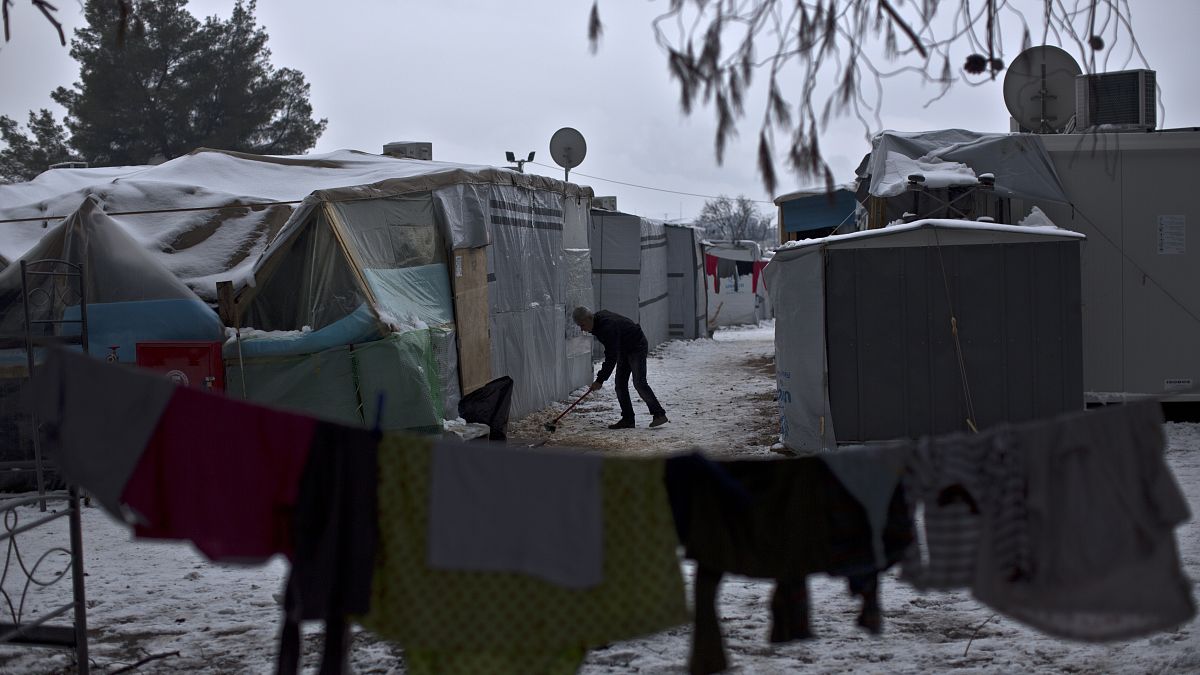Athens has faced criticism for not including asylum-seekers earlier in its vaccination campaign.
Greece will start rolling out coronavirus vaccinations in migrant camps of Lesbos, Samos and Chios islands on Thursday, a government official has said.
"Vaccination, which will be carried out with Johnson & Johnson, will take place every Thursdays and Fridays in the northern Aegean islands with staff specially sent from Athens," Asylum Secretary Manos Logothetis said on Wednesday.
"But only 15% of asylum seekers have so far expressed interest in being vaccinated," he added.
"Considering that an estimated 30% of this population is under 18 and another 30% have already been infected, the road to asylum seekers' immunity (...) is short and we will succeed," Logothetis told ANA news agency.
An estimated 9,400 people are currently living in migrants camps on the northern Aegean islands, according to the UN High Commissioner for Refugees.
'Not a priority'
Greece has faced criticism from human rights groups for not including migrants and refugees earlier in its vaccination strategy.
Government spokesperson Aristotelia Peloni sparked controversy when she said in a news conference earlier this year that migrants were not a priority.
“Others have priority, mainly elders (…) and vulnerable groups that will soon be added into the program regardless of age,” she told reporters.
Euro-Mediterranean Human Rights Monitor, an NGO based in Switzerland, slammed at the time "Greece's discriminatory vaccination practises."
"Migrants living in refugee camps are more susceptible to Covid-19 than the general Greek population, because of the overcrowding, the impossibility to keep social distancing, the lack of access to water, sanitation and hygiene facilities and the restricted access to healthcare," the non-profit said.
Human rights groups have long criticised the poor living conditions and hygiene in these camps, where asylum-seekers must wait for their applications to be processed.
They also note that migrants living in these camps have faced continued pandemic restrictions of movement since 2020, even when the lockdown was suspended or eased for the general population.
